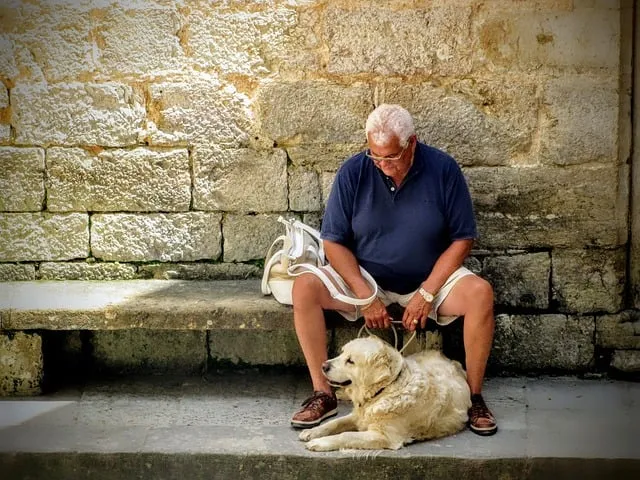Dealing With An Older Dog Toileting Inside
Causes and Solutions
Is your older dog suddenly toileting inside and you're not sure why?
Well, let me explain. First, we need to make sure that your dog is already toilet trained and has been for at least six months. We also need to rule out any health issues or incontinence. If none of these apply and the issue seems behavioral, then here's the simple truth.
Your dog is still mostly wolf, even in their cute doggy form. They think and act like a wolf. And chances are, you might not actually be the pack leader. If you want to check, there's a website with a video that can help you determine if you are.
But let's dive into the toileting issue. In the wild, wolf puppies would use their sense of smell to find their way back home if they got lost. They would follow the scent of the den and the adult dogs would make sure there's a strong scent trail to follow.
Now, imagine this:
your dog sees themselves as the pack leader and when you leave, they're trying to help you find your way back home. And guess what? You do come back! But maybe you come back stressed and angry, which has nothing to do with the new carpet being ruined.
So what can you do to address this toileting problem? It's important to establish yourself as the pack leader. Your dog needs to see you as the one in charge. This will help alleviate their anxiety when you leave and reduce the urge to mark their territory indoors.
One way to establish yourself as the pack leader is through consistent training and boundaries. Make sure your dog understands basic commands like sit, stay, and come.
This shows them that you are in control and they need to listen to you.
Use positive reinforcement techniques like treats and praise to reward good behavior.
Creating a structured routine can also be helpful. Dogs thrive on routine, so establish regular feeding times, walks, and play sessions. This helps your dog feel secure and reduces stress.
Another important aspect is ensuring that your dog gets enough physical and mental stimulation. A tired dog is a well-behaved dog.
Make sure to provide regular exercise through walks, playtime, and interactive toys. Mental stimulation can come in the form of puzzle toys, obedience training sessions, or even hiding treats around the house for your dog to find.
Consistency is key when addressing toileting issues. Make sure to take your dog outside regularly to go to the bathroom and praise them when they do so successfully.
If you catch your dog in the act of toileting indoors, interrupt them with a firm "no" and take them outside immediately. Clean up any accidents thoroughly with an enzyme-based cleaner to remove the scent and discourage repeat incidents.
In some cases, it may be helpful to consult with a professional dog trainer or behaviorist. They can provide personalized guidance and help you address any underlying behavioral issues that may be contributing to the toileting problem.
Remember, patience is essential when dealing with behavioral issues. It takes time and consistency to modify your dog's behavior. But with proper training, leadership, and understanding of their natural instincts, you can help your older dog overcome their toileting issues and create a harmonious living environment for both of you.
So don't fret if your older dog is toileting inside. Take a step back, assess the situation, and implement these strategies to establish yourself as the pack leader and address their behavioral needs. With time and dedication, you can help your dog overcome this challenge and continue to enjoy their companionship for years to come.

